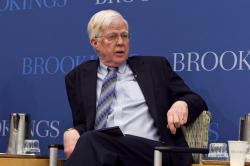Abstract
This paper uses a combination of growth accounting and regression analysis to examine economic growth experiences of 88 developing and industrial economies over the period 1960-1992. The decomposition shows that increases in total factor productivity (TFP) have been surprisingly small in developing countries, and that accumulation of physical and human capital account for most of the growth per worker. This reinforces a finding of some previous authors, but for a much larger sample of countries. Further, the fact that countries with high rates of factor accumulation do not have unusually high rates of TFP growth provides little support for the new endogenous growth theories. Our analysis also uncovers significant difficulties with the use of investment rates and school enrollment rates as proxies for capital accumulation, highlighting a reason why some previous studies have understated the importance of accumulation.
Our regression results strongly support the growing consensus that stable, orthodox macroeconomic policy, combined with outward oriented trade policies foster economic growth. We explore the channels through which determinants of growth operate. Among other findings, we show that larger budget deficits slow growth through reducing capital accumulation, while real exchange rate volatility operates mainly through slowing TFP growth. Outward orientation appears to work through both channels.
Introduction
The question of why rates of economic growth differ across nations has long been a subject of research and policy debate. The last decade has witnessed the development of several theoretical ideas that attempt to move beyond the neoclassical model with its emphasis on diminishing returns to factors, such as capital accumulation, that might be influenced by government policies. At the policy level, a new consensus has emerged that has replaced the old emphasis on inward-oriented growth policies. Today, developing countries are urged to focus their attention on the maintenance of a stable macroeconomic environment and the adoption of microeconomic policies that limit the role of government and give precedence to private agents in open, liberalized markets. Particular emphasis is assigned to the removal of barriers to free economic interchange between the domestic economy and international markets.




